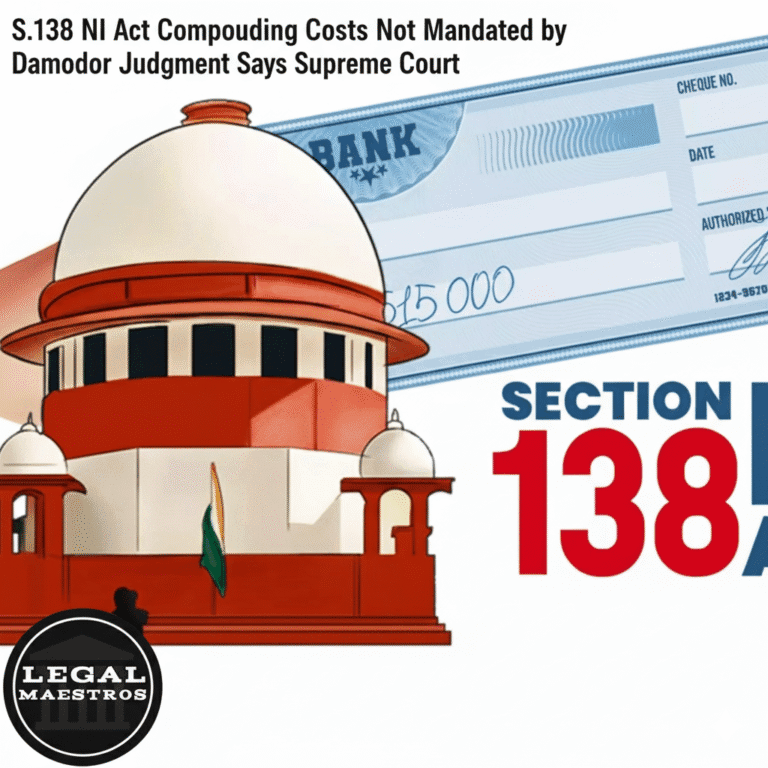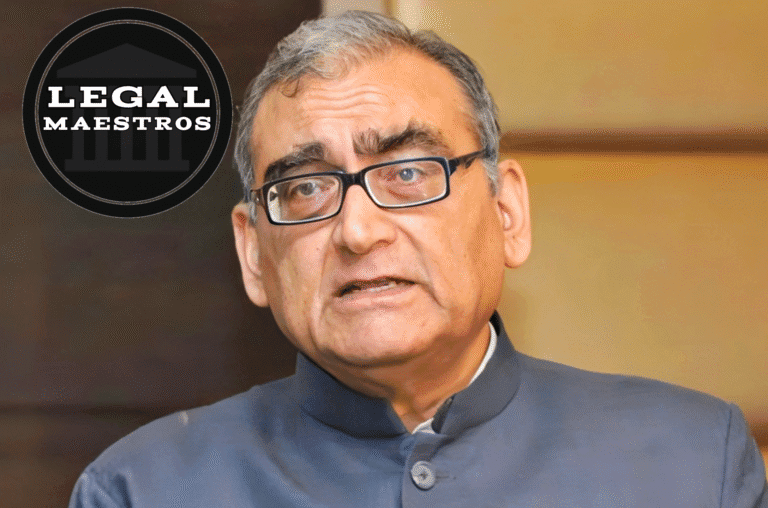
On 13 November 2025, Supreme Court ordered Bombay High Court for fresh consideration in a matter involving application of Section 37 of NDPS Act. The Apex Court Highlighted that the prosecution’s case should be heard again and High court should pass a reasoned judgment after appraising all the materials on record, Court highlighted the seriousness of the case due to the commercial amount of the contraband seized which was imported by M/s Yummito International Foods India Pvt. Ltd. of which respondent is a director. The amount seized was 50.2 Kilograms of Cocaine on 06 and 07 October 2022 and the alleged involvement of the same respondent in an earlier seizure of 198.1 Kilograms of methamphetamine and 9.035 kilograms of cocaine in early October 2022.
Proceedings Before the High Court
Respondent approached High Court of Judicature at Bombay after his bail application was rejected on 24.01.2024 by the special court due to his active participation in the import of the said contraband and clear application of Section 37 of NDPS Act which makes his offence cognizable and non bailable too due to the commercial scale of the seized contraband. The High Court granted bail to the respondent on 22.01.2025 and reasoned it with the fact that the initial evidences show no direct link between the respondent and seized cocaine, further that there were no prior criminal conduct of the respondent and lastly that the trial’s conclusion will take time. A following order in the same matter dated 12.03.2025 of a subsequent bail application by the respondent the High Court again granted bail to the respondent citing Parity and restating absence of knowledge and prolonged custody of the respondent.
For any queries or to publish an article or post or advertisement on our platform, do call at +91 6377460764 or email us at contact@legalmaestros.com.
Union’s argument before the Apex Court
Additional Solicitor General Sh. Raghavendra P. Shankar argued for the Union and highlighted lapses in the High Court’s Reasoning, he highlighted that the commercial quantity of the seizure under section 21(c), 23(c), 29 and 30 read with section 8(c) of the NDPS Act clearly make the offence a non bailable one as per the bar under Section 37 of the same Act. The reasoning adopted by High Court as per the Union was flawed because it goes against settled principle of Law, furthermore it was also highlighted that the High Court failed to record that the respondent would not commit any offence while being on bail. Union highlighted that High Court failed to appreciate call data records, seizure memos, and statements recorded under Section 67 of NDPS Act which points toward the culpability of the respondent, the delay in trial and issues related to health can’t override the statutory embargo of NDPS Act.
Arguments of Respondent
For any queries or to publish an article or post or advertisement on our platform, do call at +91 6377460764 or email us at contact@legalmaestros.com.
The respondent advanced the argument that there is no clear establishment of a connection between the seized contraband from the container to him, as it was not seized from his personal custody. He argued that the statements recorded under Section 67 of NDPS Act lacked independent corroboration moreover the respondent has been in custody since October 2022 and the trial has not commenced and is not likely to commence in the near future. Lastly, it was shown by him that the respondent lacked any prior antecedent and posed no risk for evidence tampering or absconding. He maintained that the High Court correctly balanced the requirements of Section 37 with his right to personal liberty under Article 21.
Supreme Court’s Observations
The Apex Court observed that the High Court granted bail without applying the binding requirements of Section 37 of the NDPS Act. It also noted that the High Court failed to consider the crucial material given in evidence by prosecution which included data of call records, alleged role of respondent in placing the import orders, supervising logistics, being present during the opening of the container, and his involvement in the earlier case of seizure of narcotics only days before the present case. The Court highlighted that these omissions directly affected the mandatory requirement of Section 37 of NDPS Act although the court said that the factual assessment of the same and recording it is something which the High Court should undertake.
For any queries or to publish an article or post or advertisement on our platform, do call at +91 6377460764 or email us at contact@legalmaestros.com.
In its order, the Supreme Court set aside the High Court’s orders and ordered the High Court to hear both sides and apply the statutory requirements of Section 37 and pass a reasoned order keeping in view the material on record and observation made by the Supreme Court and until the High Court takes a decision in this regard just an interim arrangement court directed that the respondent shall continue to be on bail and must oblige with the terms and conditions of the High Court’s order and any attempt to tamper with evidence or contact witnesses shall entitle prosecuting agency to move for an immediate revocation of the bail.
Implication of this Order
This order clearly highlights that the bail standards set in NDPS are statutory mandate and should be strictly applied before granting bail in cases involving commercial quantities of narcotic substances. It sends a clear message that judicial scrutiny cannot be diluted in serious drug trafficking matters, particularly where large-scale, organized operations are alleged. The ruling is also likely to influence parallel investigations arising from the linked earlier seizure, as the Supreme Court’s emphasis on considering antecedent involvement may strengthen the prosecution’s stance in related proceedings.
For any queries or to publish an article or post or advertisement on our platform, do call at +91 6377460764 or email us at contact@legalmaestros.com.








